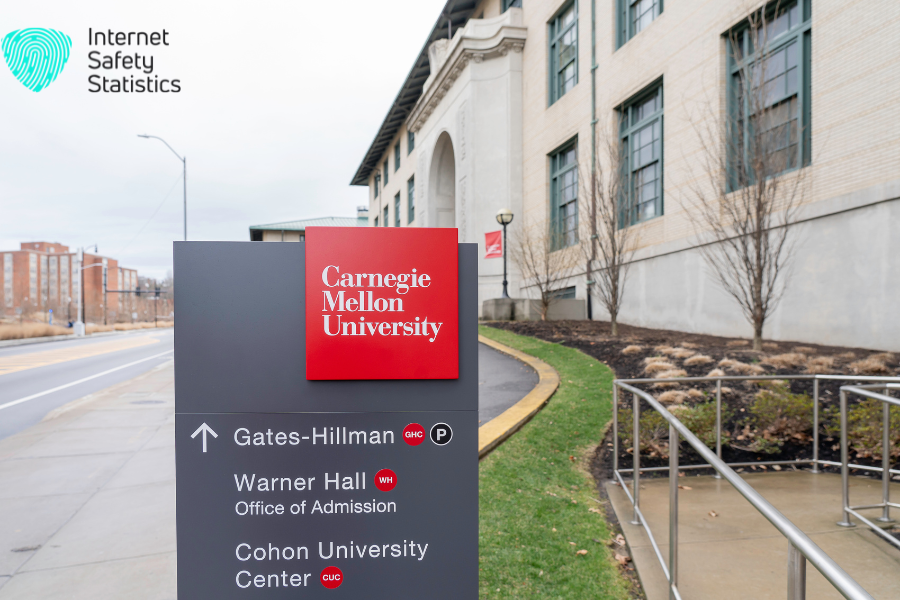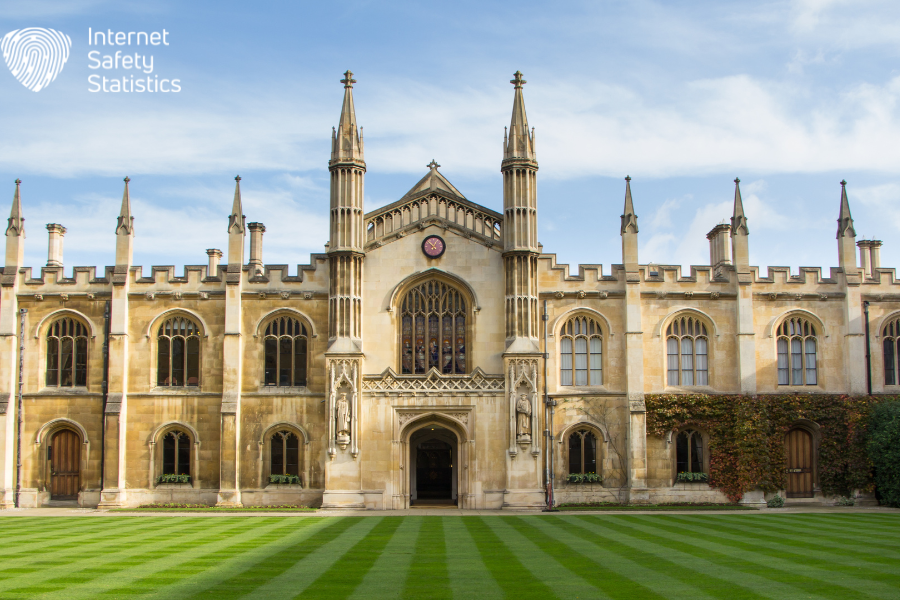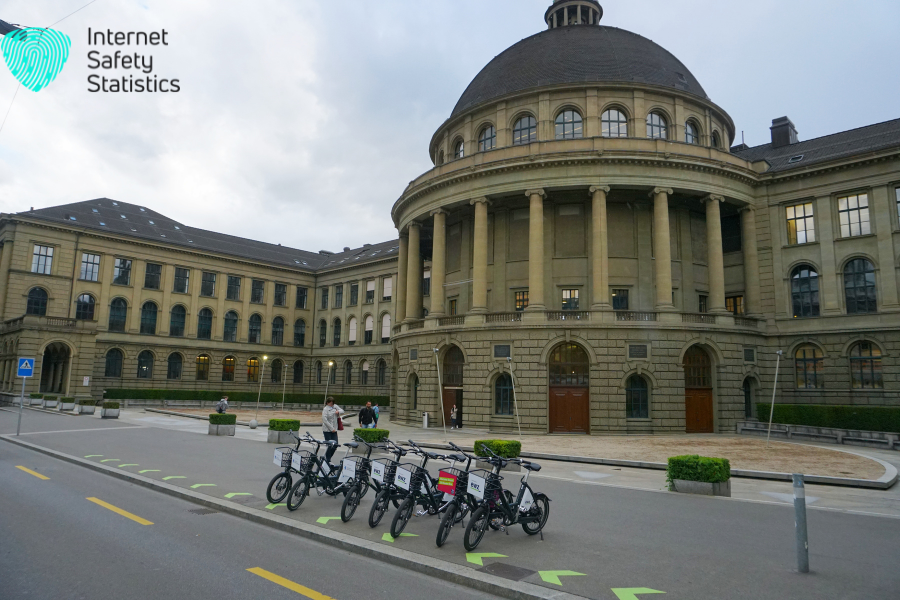
Top cybersecurity universities stand as pillars of defense in the ever-evolving battle against cyber threats. In an increasingly interconnected world, cybersecurity has become a paramount concern for individuals, organisations, and nations alike. As our reliance on digital technologies continues to grow, so too does the threat landscape posed by malicious actors. This escalating need for robust cybersecurity solutions necessitates a well-equipped workforce capable of safeguarding our critical infrastructure and digital assets.
Ranking Considerations: Decoding the Landscape of Top Cybersecurity Universities
Choosing the right cybersecurity university is a crucial step in launching a successful career in this dynamic field. While individual needs and aspirations play a significant role, university rankings can offer valuable insights and serve as a starting point for your exploration. However, it’s important to understand the factors used to rank these universities and how they translate to practical value for your future career.
Here are some key factors considered in ranking cybersecurity universities:
Faculty Expertise
- Why it matters: Renowned faculty with extensive industry experience and research contributions can directly translate into high-quality education and cutting-edge knowledge. They bring real-world insights into the classroom and potentially offer opportunities for research collaboration and mentorship.
Research Output
- Why it matters: A university’s research productivity in cybersecurity demonstrates its commitment to advancing the field and staying ahead of evolving threats. Studying at an institution with a strong research output allows you to access the latest knowledge and innovations, preparing you for the ever-changing cybersecurity landscape.
Industry Connections
- Why it matters: Strong partnerships with industry leaders can provide students with invaluable internship and career placement opportunities. These connections offer practical experience, exposure to real-world problems, and potentially a strong starting point for your career.
Student Outcomes
- Why it matters: Examining the success rate of graduates in securing jobs, launching their own ventures, or pursuing further education offers insights into the effectiveness of the program in preparing students for their chosen career paths.
Program Offerings
- Why it matters: A diverse range of undergraduate and graduate programs allows students to specialise in specific areas of cybersecurity that align with their interests and career aspirations. Studying a program that offers specialised courses and practical training can equip you with the specific skillset required for your desired career path.
It’s important to remember that rankings are just one piece of the puzzle. Consider these factors alongside your personal criteria, such as program costs, location, and learning environment, to make an informed decision. By understanding the rationale behind these ranking considerations and their impact on your future career, you can confidently navigate the landscape of top cybersecurity universities and choose the one that best aligns with your unique goals and aspirations.
Stanford University

Standing as another prominent institution in the cybersecurity landscape, Stanford University fosters a vibrant environment for learning, research, and innovation.
Cybersecurity Initiatives and Research Hubs
- Stanford houses several dynamic initiatives and research hubs dedicated to cybersecurity:
- The Stanford Institute for Human-Centered Artificial Intelligence (HAI) explores the intersection of AI and cybersecurity, focusing on developing responsible AI solutions that enhance security while upholding ethical principles.
- The Center for International Security and Cooperation (CISAC) investigates pressing international security challenges, including cyber threats, and proposes solutions through research and policy engagement.
- The Freeman Spogli Institute for International Studies (FSI) examines the global dimension of cybersecurity, analysing its implications for international relations and political stability.
- These initiatives collaborate with diverse departments and schools at Stanford, including Computer Science, Engineering, Law, and Business, creating a holistic approach to addressing cybersecurity challenges.
Highlights of Key Cybersecurity Faculty and their Contributions
- Stanford boasts renowned faculty members who have made significant contributions to various areas of cybersecurity:
- Professor Dan Boneh, co-founder of Stanford’s Cybersecurity Initiative: His research focuses on cryptography, secure systems, and privacy-enhancing technologies, with significant contributions to real-world applications.
- Professor John Mitchell, a leading expert in formal methods for security: His work pioneers mathematical approaches to analysing and designing secure systems, leading to advancements in software security and vulnerability detection.
- Professor David Wagner, a prominent figure in cryptography and network security: His research explores various areas, including secure protocols, side-channel attacks on hardware systems, and internet voting security.
By cultivating a robust network of research initiatives, collaborative hubs, and distinguished faculty, Stanford University positions itself as a leading force in shaping the future of cybersecurity. These efforts foster a dynamic environment where students can gain valuable knowledge and contribute to advancements in this ever-evolving field.
Note: This information serves as an example of Stanford University’s contributions and is not exhaustive. Many other faculty members and initiatives contribute to the university’s strong cybersecurity presence.
Massachusetts Institute of Technology (MIT)

Overview of Cybersecurity Programs and Research Centers
- MIT offers a diverse range of cybersecurity programs, catering to students at various stages of their academic journey. These include:
- Undergraduate minor in Cybersecurity: This program provides students with a strong foundation in cybersecurity fundamentals, preparing them for further studies or entry-level positions in the field.
- Master of Science in Computer Science and Engineering (MCSCE) with a focus in Cybersecurity: This program delves deeper into advanced cybersecurity topics, preparing graduates for leadership roles in research, industry, or government.
- PhD in Computer Science and Engineering with a focus in Cybersecurity: This program equips students with the skills necessary to conduct cutting-edge research and contribute significantly to the advancement of the field.
- MIT houses several renowned research centers dedicated to cybersecurity, fostering innovation and collaboration among faculty and students. These include:
- The Computer Science and Artificial Intelligence Laboratory (CSAIL): This research lab focuses on various aspects of cybersecurity, including secure systems, cryptography, and network security.
- The Internet Policy Research Lab (IPRL): This lab examines the policy implications of emerging technologies, including cybersecurity, and aims to develop solutions that balance security with individual rights and innovation.
Notable Faculty and Alumni in the Field
- MIT boasts a distinguished faculty with exceptional expertise in various areas of cybersecurity. Some notable names include:
- Professor Ronald Rivest, co-creator of the RSA encryption algorithm: His contributions have revolutionised the field of cryptography and laid the foundation for secure communication protocols.
- Professor Stuart Madnick, a leading expert in cybersecurity policy: His research focuses on developing effective frameworks and policies to address complex cybersecurity challenges.
- MIT graduates have made significant contributions to the cybersecurity landscape:
- Charles Koch, CEO of Koch Industries: A pioneer in applying cybersecurity principles to industrial control systems.
- Whit Diffie, co-creator of the Diffie-Hellman key exchange protocol: His work has significantly enhanced the security of online communication.
By examining these key aspects, we gain a deeper understanding of MIT’s commitment to excellence in cybersecurity education and research. This esteemed institution serves as a prime example of how universities are shaping the future of this critical field.
Note: This is just one example of a top cybersecurity university. Remember, there are many other excellent institutions across the globe offering exceptional programs and contributing significantly to the advancement of cybersecurity.
Carnegie Mellon University

Carnegie Mellon University (CMU) stands out as a global leader in cybersecurity education and research, consistently recognised for its exceptional programs and contributions to the field. Two key aspects contribute to CMU’s prominent position in the cybersecurity landscape:
CyLab – The Carnegie Mellon University Cybersecurity and Privacy Institute
- CyLab is a university-wide institute dedicated to advancing cybersecurity research and education. Founded in 2003, it has grown into one of the largest university-based cybersecurity research and education centers in the United States.
- CyLab fosters collaboration between faculty, students, and industry experts, creating a vibrant hub for innovation and knowledge exchange. It houses multiple research groups focusing on various cybersecurity areas, including cryptography, network security, and software security.
- CyLab’s activities extend beyond research, actively engaging in education and outreach. The institute offers summer camps, workshops, and lectures to introduce high school and undergraduate students to cybersecurity concepts.
Notable Cybersecurity Programs and Degrees
- CMU offers a diverse range of cybersecurity programs catering to students at different academic levels:
- Undergraduate Minor in Information Security: This program provides a solid foundation in cybersecurity fundamentals, preparing students for further studies or entry-level positions in the field.
- Master of Science in Information Security (MSIS): This program delves deeper into advanced cybersecurity topics, equipping graduates with the skills needed for leadership roles in research, industry, or government.
- Master of Science in Electrical and Computer Engineering (MECE) with a Specialisation in Cybersecurity: This program combines technical engineering expertise with a strong understanding of cybersecurity principles, creating well-rounded professionals for technical security roles.
- PhD in Information Security and Privacy: This program caters to individuals seeking to pursue research careers in cybersecurity, aiming to make significant contributions to the field through original research and scholarship.
- These programs are distinguished by their:
- Strong faculty expertise: Many of the instructors are renowned researchers and practitioners with extensive experience in various cybersecurity domains.
- Rigorous curriculum: Students gain hands-on experience through practical exercises, labs, and projects, preparing them for the real-world challenges of the cybersecurity industry.
- Industry connections: CMU boasts strong relationships with leading cybersecurity companies, offering students internship and career placement opportunities.
By combining the extensive research capabilities of CyLab with a diverse range of academic programs, Carnegie Mellon University establishes itself as a prominent force in shaping the future of cybersecurity. With its commitment to academic excellence, industry engagement, and fostering the next generation of cybersecurity professionals, CMU continues to play a pivotal role in confronting the evolving threats faced in the digital age.
University of Cambridge

The University of Cambridge, with its rich history and dedication to academic excellence, has firmly established itself as a leader in cybersecurity research and education. This esteemed institution fosters a vibrant environment for learning, discovery, and collaboration, shaping the future of cybersecurity through its diverse offerings and impactful initiatives.
Overview of Cybersecurity Research and Education
- Cambridge fosters a comprehensive approach to cybersecurity education and research. The university offers various academic programs, including:
- Master of Philosophy (MPhil) in Cyber Security: This program equips students with the advanced knowledge and skills necessary to tackle complex cybersecurity challenges.
- PhD in Computer Science: This program allows students to specialise in cybersecurity research, potentially leading to groundbreaking discoveries and advancements in the field.
- Beyond its dedicated programs, Cambridge integrates cybersecurity into various disciplines, such as Engineering and Law, promoting a holistic understanding of the challenges and opportunities related to digital security.
- The University of Cambridge Computer Laboratory (UCL) houses the Centre for Research in Security (CRYSYS), a leading research group dedicated to advancing the science and engineering of cybersecurity through fundamental research and practical applications.
- Additional research centers and initiatives, such as the Centre for Science and Policy and the Institute for Computing Science (ICSI), contribute to interdisciplinary research efforts addressing the multifaceted nature of cybersecurity.
Notable Projects and Partnerships
- Cambridge faculty and students actively collaborate on various impactful cybersecurity research projects:
- The “Armour” project focuses on developing secure operating systems for mobile devices, aiming to address the growing vulnerabilities in smartphones and tablets.
- The “Trustworthy Systems” group explores various aspects of secure software development and formal methods, aiming to build systems that are inherently more resistant to cyberattacks.
- The University of Cambridge fosters strong partnerships with various stakeholders:
- Collaboration with industry giants: Partnerships with companies like Microsoft, ARM, and Google enable researchers to work on real-world problems and translate their findings into practical solutions.
- Government collaborations: Cambridge actively engages with government agencies to inform policy decisions and develop strategies to combat cyber threats on a national and international level.
- International partnerships: Collaboration with universities and research institutions worldwide fosters knowledge exchange and fosters international cooperation in addressing global cybersecurity challenges.
By providing a comprehensive academic environment, fostering cutting-edge research, and forging impactful partnerships, the University of Cambridge plays a pivotal role in shaping the future of cybersecurity. Its dedication to excellence and collaborative spirit contribute significantly to building a more secure and resilient digital future for all.
ETH Zurich

ETH Zurich (Swiss Federal Institute of Technology Zurich), renowned for its scientific and technological prowess, is also a frontrunner in cybersecurity education and research. This esteemed institution fosters a collaborative environment where students and researchers work together to address the evolving challenges of securing increasingly interconnected systems. Here’s a closer look at two key aspects of ETH Zurich’s contribution to the field:
Cyber-Physical Systems Group and their Cybersecurity Focus
- The Cyber-Physical Systems (CPS) Group within the Department of Information Technology and Electrical Engineering (D-ITET)** plays a crucial role in ETH Zurich’s cybersecurity landscape. This group focuses on understanding and mitigating security vulnerabilities in cyber-physical systems (CPS), which are intricate combinations of physical components and computational elements.
- CPS are ubiquitous in today’s world, encompassing infrastructure systems (e.g., power grids, transportation networks), industrial control systems (e.g., manufacturing plants), and even autonomous vehicles. Securing these systems is paramount, as cyberattacks can have devastating consequences for public safety and economic well-being.
- The CPS Group conducts research on:
- Identifying and analysing vulnerabilities in CPS, uncovering potential entry points for malicious actors.
- Developing innovative security solutions tailored to the unique characteristics of CPS
- Enhancing the resilience of CPS to cyberattacks and disruptions.
- This group’s research contributes significantly to:
- Improving the security of critical infrastructure and safeguarding essential services.
- Advancing the development of secure and reliable autonomous systems.
- Informing policy decisions related to cyber-physical security on local, national, and international levels.
Cybersecurity Education and Research at ETH Zurich
- ETH Zurich offers diverse academic programs that equip students with the knowledge and skills needed to address present and future cybersecurity challenges. These include:
- Master of Science in Computer Science (MSc CS) with a specialisation in Cyber Security: This program provides a deep dive into theoretical and practical aspects of cybersecurity, preparing graduates for leadership roles in research, industry, or government.
- PhD program in Computer Science: This program allows students to specialise in cybersecurity research, fostering the development of future generations of security experts and researchers.
- Beyond dedicated programs, cybersecurity is integrated into various courses across different departments, offering students a well-rounded understanding of the topic.
- Several research groups within ETH Zurich actively contribute to advancing cybersecurity knowledge:
- The Distributed Computing Lab focuses on securing distributed systems and cloud computing environments.
- The Security and Privacy Engineering Lab explores various aspects of security and privacy in software systems and networks.
- The Secure Systems Lab investigates novel approaches to secure hardware and embedded systems.
Through its dedicated research groups, robust academic offerings, and commitment to interdisciplinary collaboration, ETH Zurich positions itself as a leading institution in shaping the future of cybersecurity. Its focus on addressing vulnerabilities in cyber-physical systems and its commitment to equipping the next generation of security professionals are vital contributions to building a safer and more secure digital world.
Emerging Trends in Cybersecurity Education
The ever-evolving nature of cybersecurity necessitates constant adaptation and innovation in educational approaches. Here, we explore two key trends shaping the landscape of cybersecurity education:
The Impact of Technological Advancements on Curriculum
- The rapid pace of technological advancements, including artificial intelligence (AI), machine learning (ML), and the Internet of Things (IoT), necessitates a dynamic curriculum that keeps pace with these changes.
- Curriculum updates: Universities are continuously integrating these emerging technologies into cybersecurity programs, equipping students with the knowledge and skills necessary to address threats related to AI-powered attacks, vulnerabilities in IoT devices, and the increasing complexity of cyber threats.
- Hands-on learning: Programs are increasingly incorporating practical exercises, simulations, and real-world case studies involving these new technologies, allowing students to learn by doing and apply their knowledge to realistic scenarios.
- Emerging specialisations: As specific areas within cybersecurity become more intricate, universities are offering specialized courses or programs in areas like AI security, cloud security, and IoT security, preparing students for specialized career paths.
Increasing Importance of Interdisciplinary Approaches
- Cybersecurity is no longer an isolated domain. It is deeply intertwined with other disciplines, including computer science, engineering, law, and business.
- Interdisciplinary learning: Universities are adopting interdisciplinary approaches that combine expertise from various fields. This exposes students to diverse perspectives and equips them with a holistic understanding of the complex challenges and solutions in cybersecurity.
- Collaboration: Programs increasingly include collaborative projects and assignments where students from different disciplines work together, fostering critical thinking, communication, and teamwork skills, all crucial for success in the field.
- Ethical considerations: As technology advances, ethical considerations surrounding data privacy, AI bias, and responsible use of technology become increasingly important. Universities are integrating ethical frameworks and discussions into cybersecurity education, preparing students to be responsible and ethical professionals.
By embracing these emerging trends, cybersecurity education becomes more dynamic, relevant, and adaptable to the ever-changing landscape of threats and technologies. Equipping students with the latest knowledge, practical skills, and a broad-based understanding of the field will position them to become future leaders in securing our digital world.
Conclusion
Top cybersecurity universities shape the global security landscape through innovative research, diverse programs, and nurturing future experts. They develop cutting-edge solutions, upskill professionals, and foster international collaboration, all crucial for tackling evolving cyber challenges.
In this interconnected world, promoting cybersecurity education empowers individuals to protect themselves online, equips organisations to safeguard their data, and builds a more secure digital future for all. Choosing this path is an investment in your career and a contribution to a safer digital world, where everyone can operate online with confidence and trust.
